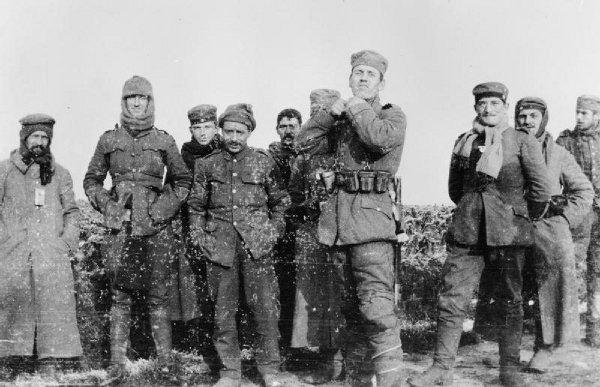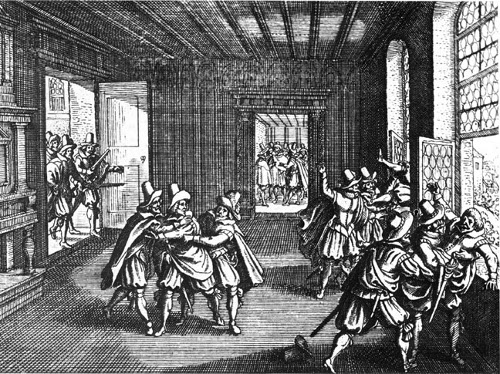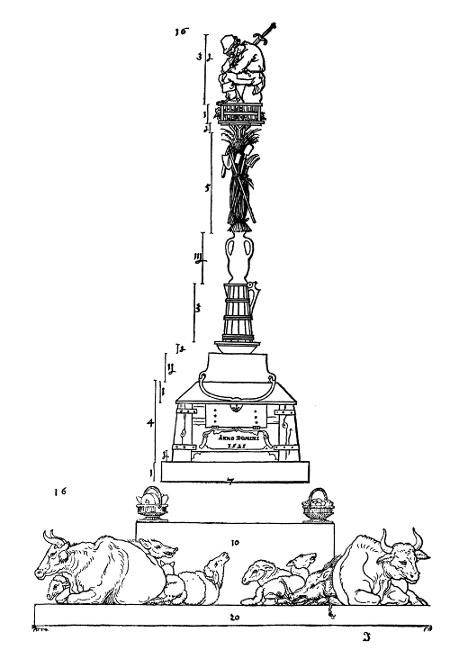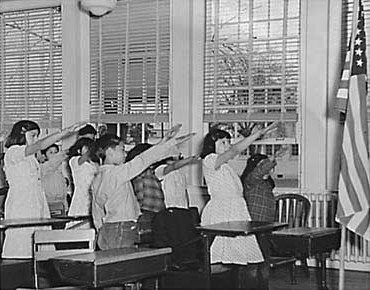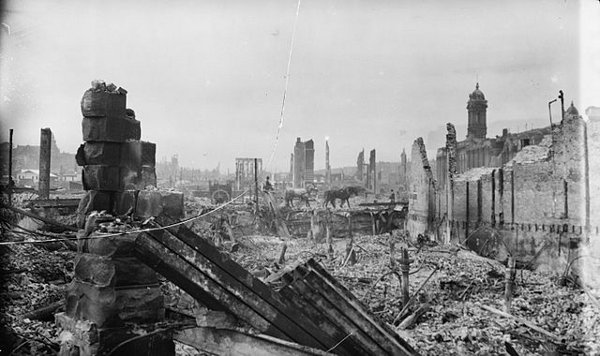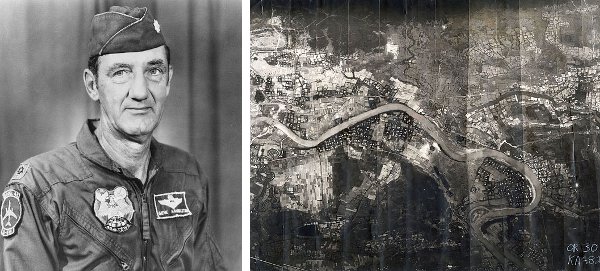
One last, almost unbelievable, anecdote from the San Francisco earthquake:
When the quake struck at 5:12 a.m., William Stehr was in his room on the top floor of the Nevada House at 132 Sixth Street. At first he considered jumping from his window onto a roof below, but “as I was waiting to make up my mind the house I was looking at collapsed with a deafening roar.” He was dressing himself hurriedly when he heard another crash and saw that the Brunswick House had also collapsed “and was tumbling into a heap of ruins in a smother of dust.” He leapt to his door but found that the quake had jammed it shut.
As I was tugging at it I felt the floor tilting and sinking under me, and I knew that the house was going down like the others. So I hung on instinctively to the door handle while the whole floor dropped. As it sank I felt three distinct bumps as the lower floors collapsed in turn under the weight of the roof and the top story. With each bump came a frightful crash and cracking of timbers and glass and the cries of other people in the house who were being destroyed. …
The cries of these people who were being killed, especially the women, were dreadful to hear; even to me, in my own peril, thinking every instant that I would be crushed, they were the most dreadful part of the experience.
Then came another bump, very sudden and very severe. The place fell in on top of me, the breath seemed to be knocked out of my body and I went unconscious.
He had survived. Of the 50 people in the Nevada, only seven had escaped. “On all sides, where the Nevada, the Ohio, the Brunswick and other lodging houses had been, there was nothing but a big pile of debris.”
(From Malcolm E. Barker’s Three Fearful Days, 1998.)

